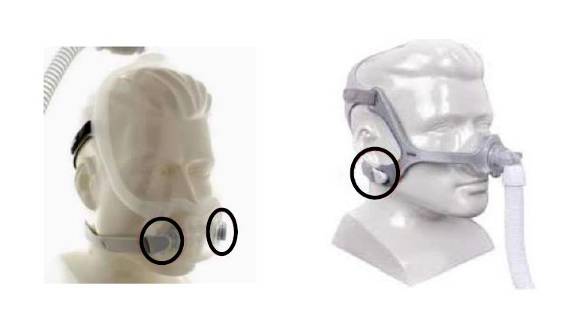Philips Warns Certain CPAP, BiPAP Masks May Cause Serious Injury
Editors carefully fact-check all Drugwatch.com content for accuracy and quality.
Drugwatch.com has a stringent fact-checking process. It starts with our strict sourcing guidelines.
We only gather information from credible sources. This includes peer-reviewed medical journals, reputable media outlets, government reports, court records and interviews with qualified experts.

Philips Respironics is warning CPAP and BiPAP users about the risks associated with millions of its respiratory masks made with magnets that can potentially cause injury or death.
The magnets on headgear clips or straps can interfere with metallic implants and other metallic objects in the body, causing them to fail and resulting in other serious side effects. Sleep therapy devices use magnets to attach headgear straps to the mask and are commonly used in the industry.
Despite this safety issue, Philips has not recalled the masks.
“These masks may continue to be used according to the updated instructions and labeling if patients or people in close proximity to them do not have implanted metallic medical devices or metallic objects in the body,” Philips said in its voluntary notification to users.
Masks affected by this warning include:
- Amara View Full Face Mask
- DreamWisp Nasal Mask
- DreamWear Full Face Mask
- Wisp and Wisp Youth Nasal Mask
- Therapy Mask 3100 NC/SP
To date, the CPAP maker has distributed more than 17 million masks containing magnetic clips. Instead of recalling the masks, Philips has strengthened warnings on product labels to alert users about these risks.
Serious Injuries Linked to Magnetic Masks
As of Sept. 6, Philips had received 16 injury reports, including pacemaker failure leading to replacement, the need for shunt adjustment, pacemaker interference, resetting of automatic implantable cardioverter defibrillator (AICD), defibrillator shutting off periodically, seizures, arrhythmia, change in heartbeats, irregular blood pressure and cognitive issues.
So far, there have been no reported deaths.
“Patients should only stop using the masks with magnets if the implanted metallic medical device/metallic object is contraindicated against the mask magnets. These patients should consult their physician immediately to determine if another mask can be used for their therapy,” according to Philips.
Implanted and other contraindicated devices include:
- Aneurysm clips
- Cerebral spinal fluid (CSF) shunts
- Contact lenses that may contain metal
- Devices considered MR (Magnetic Resonance) unsafe
- Embolic coils
- Hypoglossal nerve stimulators
- Implantable cardioverter defibrillators (ICD)
- Implantable ports and pumps (e.g., insulin pumps)
- Implants to restore hearing or balance that have an implanted magnet (such as cochlear implants, implanted bone conduction hearing devices and auditory brainstem implants)
- Intracranial aneurysm intravascular flow disruption devices
- Magnetic denture attachments
- Magnetic metallic implants not labeled for MR or not evaluated for safety in a magnetic field
- Magnetic metallic implants/electrodes/valves placed in upper limbs, torso or higher (i.e., neck and head)
- Metallic cranial plates, screws, burr hole covers and bone substitute devices
- Metallic gastrointestinal clips
- Metallic splinters in the eye
- Metallic stents (e.g., aneurysm, coronary, tracheobronchial, biliary)
- Neurostimulators
- Ocular implants (e.g., glaucoma implants, retinal implants)
- Pacemakers
Patients implanted with contraindicated devices can switch to a CPAP or BiPAP mask that doesn’t use magnets to continue therapy. They can dispose of the mask once they have a replacement recommended by their medical provider.
Philips Faces Lawsuits Over CPAP, BiPAP and Ventilator Recalls
While these masks haven’t been recalled, Philips has issued other CPAP, BiPAP and ventilator recalls because of safety risks that have led to patients filing injury lawsuits.
Philips recalled millions of respiratory devices in June 2021 because PE-PUR sound abatement foam could degrade and lead to patients inhaling foam particles and toxic gases. Users who inhaled debris and chemicals could develop health problems such as respiratory issues and cancer.
As of August 2022, Philips was facing 323 CPAP lawsuits consolidated in Pennsylvania federal court and more in state courts. Lawsuits claim recalled Philips CPAPs and devices caused cancer.
The CPAP maker recalled an additional 1,660 BiPAP machines in September 2022 for contaminated plastic in machine motors. The plastic could emit toxic chemicals or cause machines to suddenly stop working.